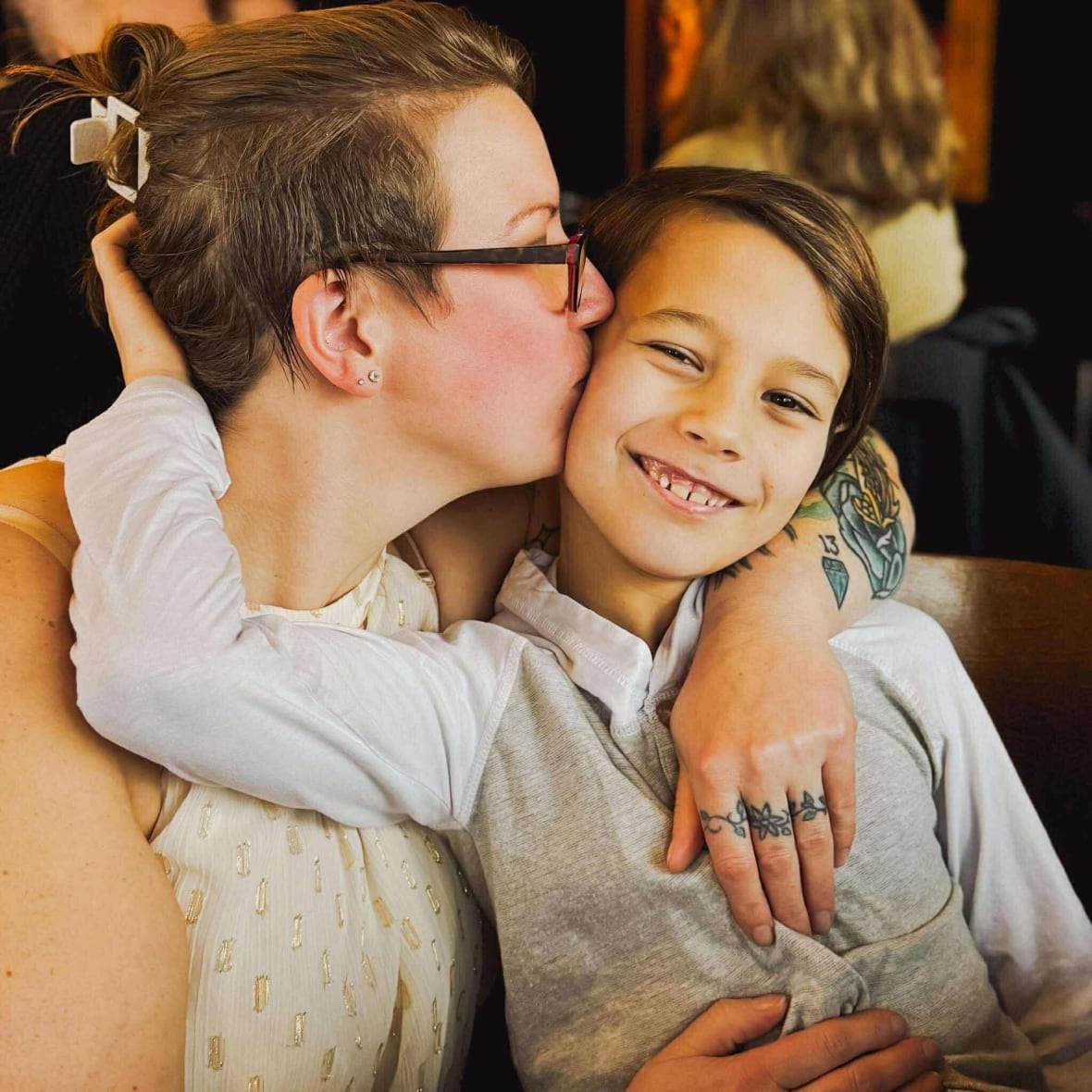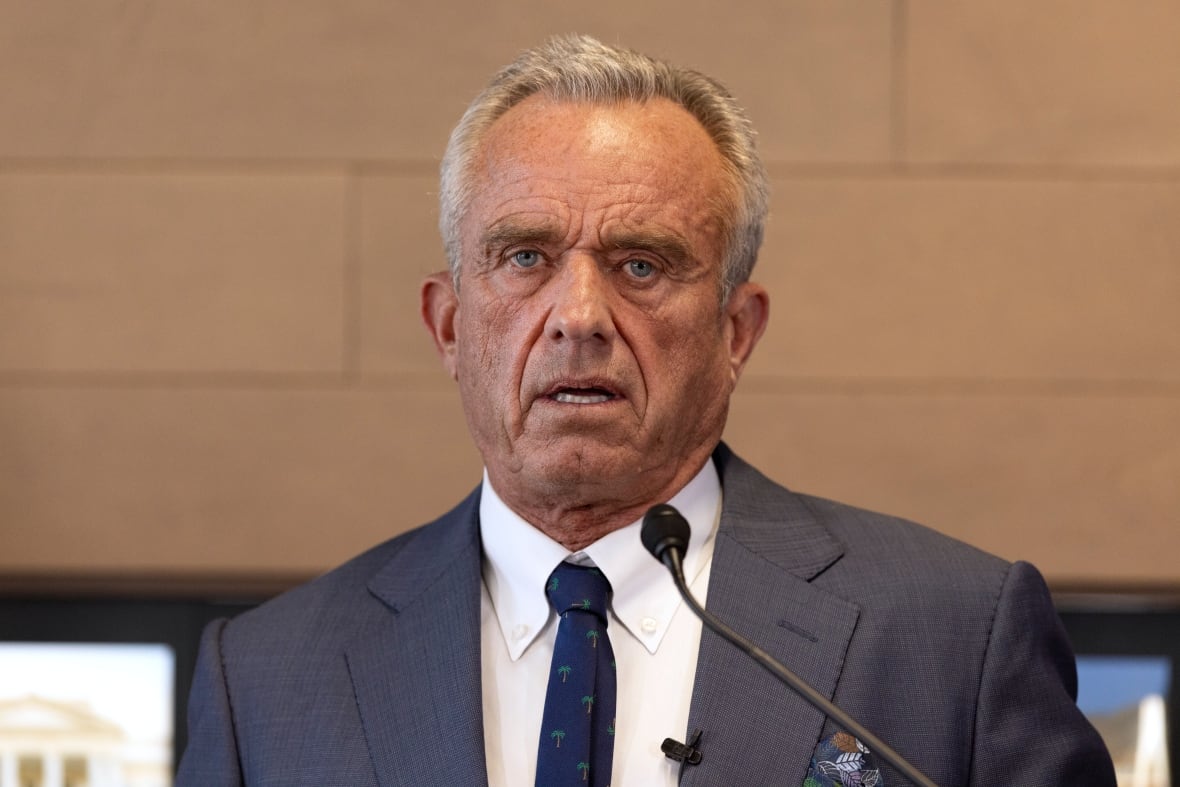Amid the many memorable moments in U.S. President Donald Trump’s speech at Charlie Kirk’s memorial Sunday, one in particular likely stood out to those in the autism community.
“Tomorrow, we’re going to have one of the biggest announcements medically, I think in the history of our country,” Trump said to the crowd of the right-wing activist’s many supporters at State Farm Stadium in Glendale, Ariz.
“I think we found an answer to autism. How about that? Autism,” Trump said, as the crowd cheered. “We won’t let it happen anymore.”
On Monday, the Trump administration linked growing rates of autism in the U.S. to the use of pain and fever reliever Tylenol, also sold by its generic name, acetaminophen.
“Taking Tylenol is not good,” Trump said from the White House, calling autism “artificially induced,” but citing no research to support his statement.
Medical experts have pushed back, with both the Canadian and U.S. associations for obstetricians and gynaecologists saying there’s no causal evidence linking fetal development and acetaminophen and expressing concern about unwarranted fear and guilt among pregnant women.
Meanwhile, some in the autism community say their concerns run even deeper.
 Vicky Haaksman, 37, of Napanee, Ont., and her son Myles Haaksman, age nine. Myles is diagnosed with autism and ADHD, and Vicky is diagnosed with ADHD but suspects she’s autistic, as well. (Submitted by Vicky Haaksman)
Vicky Haaksman, 37, of Napanee, Ont., and her son Myles Haaksman, age nine. Myles is diagnosed with autism and ADHD, and Vicky is diagnosed with ADHD but suspects she’s autistic, as well. (Submitted by Vicky Haaksman)
Linking autism to Tylenol “screams avoidance,” Vicky Haaksman, 37, of Napanee, Ont., told CBC News.
“It’s trying to make a huge thing small. And it’s not,” she said.
Haaksman’s nine-year-old son is diagnosed with both autism and ADHD. He has high sensory needs, she said, and can be prone to aggressive behaviour. Haaksman herself is diagnosed with ADHD, and suspects she’s autistic, but says it’s too difficult to pursue a costly adult diagnosis because caring for her son means she can’t maintain a job.
“Instead of actually focusing on what these families and children need, we’re going to find a random thing to blame that has no strong scientific evidence behind it.”
Pinpointing the ’cause’ of autism
Autism spectrum disorder (ASD) is a neurological condition that affects brain function and results in difficulties with communication and social interaction. It’s also associated with restricted and repetitive behaviours, interests or activities.
Support needs can vary widely. Some autistic people are non-verbal, for instance, or otherwise require extensive, ongoing care. Others generally function independently, but may require some support, such as noise-cancelling headphones in the classroom or social coaching.
Health and Human Services (HHS) Secretary Robert F. Kennedy Jr. has been promising for months that the U.S. will pinpoint the cause of autism by September.
Experts have largely attributed a rise in cases to improved screening and better understanding of the condition, reasoning that Kennedy has rejected. In April, Kennedy told reporters that autism is an “epidemic” and that it “destroys families.”
So it’s not just the potential Tylenol announcement that concerns some families, but its framing.
“It automatically others our kids,” said Rachel Snider, 33, of Kingston, Ont., whose three-year-old son has profound autism and needs around-the-clock support.
“Using words like ‘curing it’ or ‘finding the cause’ or ‘preventing it’ gives people the wrong thing to focus on. Because instead of trying to support your child or understand how to give them the best quality of life, it makes people believe there is a way to fundamentally change who your children are.”
 Katherine L’Etang of Vancouver Island was diagnosed with autism and ADHD when she was 31. (Submitted by Katherine L’Etang)
Katherine L’Etang of Vancouver Island was diagnosed with autism and ADHD when she was 31. (Submitted by Katherine L’Etang)
It’s incredibly stigmatizing, and just further casts autism as something to fear, said Katherine L’Etang, 34, of Vancouver Island, who is autistic and has ADHD.
“All this does is dramatically set us back,” L’Etang told CBC News. “It doesn’t provide any supports; it only places the blame on women and mothers.”
‘Makes me so angry’
While there is no one cause of autism, decades of research have shown that genetics plays a large role. The U.S. National Institutes of Health also lists some possible risk factors, such as prenatal exposure to pesticides or air pollution, extreme prematurity or low birth weight, certain maternal health problems or parents conceiving at an older age.
About one in 50 Canadian children (two per cent) aged one to 17 have been diagnosed with ASD, notes the Public Health Agency of Canada, with males diagnosed approximately four times more frequently than females.
Autism diagnoses in the United States have increased significantly since 2000, intensifying public concern. By 2020, the U.S. autism rate in eight-year-olds was one in 36, or 2.77 per cent, up from 2.27 per cent in 2018 and 0.66 per cent in 2000, according to the Centers for Disease Control and Prevention.
Researchers and medical experts have said there is no firm evidence of a link between the use of acetaminophen and autism.
“The vast majority of doctors do not believe that Tylenol causes autism. They do not believe that this link is there,” Dr. Christopher Labos, an epidemiologist and cardiologist in Montreal, told CBC News Network.
The Society of Obstetricians and Gynaecologists of Canada (SOGC), for instance, reiterated earlier in September that it recommended the use of acetaminophen as a first-line therapeutic option for fever and pain in pregnancy “when medically indicated at recommended doses for the shortest duration required.”
 Health and Human Services Secretary Robert F. Kennedy Jr. speaks during a press conference in April 2025 in Salt Lake City. Kennedy has been promising for months that the U.S. will pinpoint the cause of autism by September. (Melissa Majchrzak/The Associated Press)
Health and Human Services Secretary Robert F. Kennedy Jr. speaks during a press conference in April 2025 in Salt Lake City. Kennedy has been promising for months that the U.S. will pinpoint the cause of autism by September. (Melissa Majchrzak/The Associated Press)
And any available studies have been critically analyzed by scientific and regulatory bodies, including the Washington-based Society for Maternal-Fetal Medicine and the U.S. Food and Drug Administration, the SOGC continued in its statement.
“These critical reviews concluded that the evidence for causality is weak and that the results of the studies claiming a causal link should not alter current clinical practice. Recent findings provide further support that acetaminophen does not increase risks in pregnancy,” the SOGC said.
Misinformation is common, but when it’s spread by people in positions of power it becomes even more dangerous, said Shannon Burley, 34, of Belleville, Ont., whose five-year-old son is diagnosed with autism.
“To hear about this bogus connection makes me so angry,” Burley said.
“It makes me feel like they’re trying to say it’s my fault and that I could’ve prevented it, and that’s just so wrong.”

